Mozambique: ANAPRO files complaint with Ombudsman against Education Minister
Mozambique: Volunteers find thousands of missing people, help treat psychologically
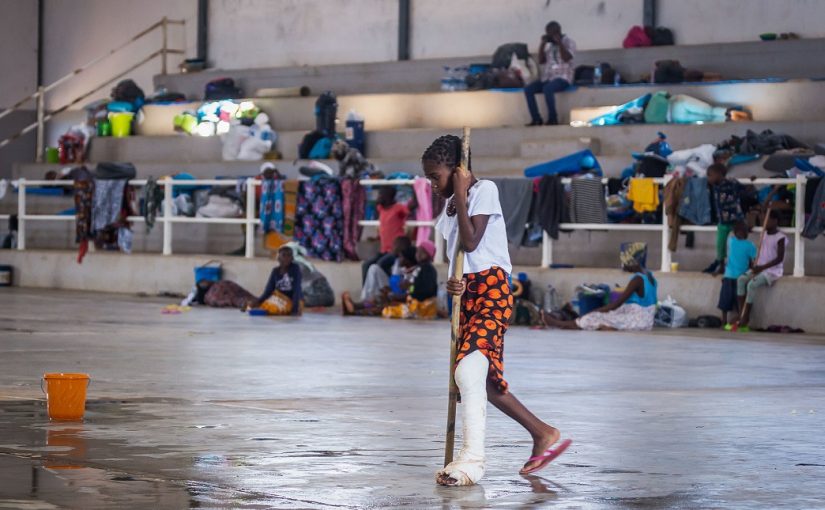
Photo: Lusa
More than 5,000 people fleeing violence in Palma, in Cabo Delgado province, have been located through a base created by Voluntários Anónimos de Moçambique (Vamoz), who are now investing in the psychological recovery of those who have experienced “barbarity”.
“As soon as people started to appear and be safe, the need for psychological support was glaring. This is not a natural accident, this is a situation of war, of armed conflict and extreme violence,” said Joana Martins, a Vamoz volunteer.
A Portuguese national who has lived in Mozambique for ten years, Joana Martins is one of the volunteers of this movement, which, following the attacks in Palma on 24 March, set up the campaign #HOPE4PALMA, which consists of registering and locating missing persons.
Vamoz, which has members of various nationalities but is a movement from Mozambique, has been active in Palma since 2020 and in the latest attacks was also left without knowing where some of the volunteers were.
“We thought that what we were going through was the same that other companies, organisations and families were going through, the same desperation: Not knowing what happened, not having information on the ground,” she told Lusa.
“We set up a system of ‘lost and found’ to list the missing people, to have the contact of the relatives and then to have the other side, of people that were found and that were transported by plane, boat or on foot. From the moment we know about these people we notify their families or the companies they work for,” she said.
To date, 6,016 lost persons have been listed and 5,115 have been found by those looking for them, through the help of Vamoz.
But this is only the first step in a helping hand that, once the physical wounds, resulting from fighting or the long walks during the flight, have been healed, now involves psychological help.
“We have formed a partnership with the Association of Psychologists of Mozambique and the MASC Foundation and we have a helpline with around 31 psychologists who provide constant support to the victims”, she said.
Help is most needed by victims of extremist violence, or who have witnessed it and have many symptoms of post-traumatic stress.
“Some have watched barbarities being committed in front of them, their family members, some being killed. Others, saw everyone else killed and stayed to tell the story and to send a message. Some families lost children, family members during the escape,” she said.
“Others were stranded in Palma, in their homes or elsewhere, for many days and anything related to the sound or the smell of burning activates that trauma and restlessness. We have other people who fled and physically they were very damaged due to walking, dehydration, hunger,” she added.
But the violence has left other marks, especially on people who are fine but in the anxiety of not knowing about their relatives or have to manage their relatives when they come home and start behaving strangely.
Vamoz now has a call centre that operates permanently and takes phone calls from those who are looking or want to be looked for, but Joana Martins acknowledged that few can access this service.
However, Vamoz relies on its collaboration with associations and humanitarian aid agencies dedicated to receiving these people, and in many cases, directing them to reception centres, when they have no family members in those places.
Joana Martins tells that after an initial massive effort of evacuations and rescues by the United Nations and the companies that are developing the gas project at the site of the attacks, such as Total, since 1 April the volunteers have been working alone.
“It is just civil society and the business branch, with the negotiation, through the Armed Forces, being able to do the evacuation. We also opened an air bridge to be able to get the most seriously injured out,” she explained.
The volunteer warns of the significant deterioration of the situation in Palma, from where the population is again leaving in fear of attacks.
“We have great difficulty in delivering and supporting these around 25,000 to 30,000 people at the bottom of the access points, because we have no way to get humanitarian support to them: food, soap, the most basic things, to at least get people through,” she said.
Joana Martins said that the volunteers’ great concern is that the issue will die and become abandoned.
“Companies are already leaving their projects, but there is a huge mass of Mozambicans who need assistance and answers,” she said, adding that they need to maintain awareness that there are entire communities who are there and are the first to suffer from this situation.
Armed groups have terrorised Cabo Delgado since 2017, with some attacks claimed by the jihadist group Islamic State, in a wave of violence that has led to more than 2,500 deaths, according to the ACLED conflict registration project, and 714,000 displaced people, according to the Mozambican government.


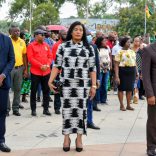

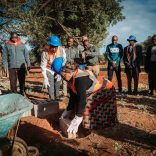
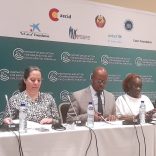
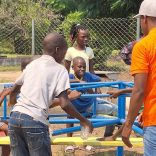





Leave a Reply
Be the First to Comment!
You must be logged in to post a comment.
You must be logged in to post a comment.